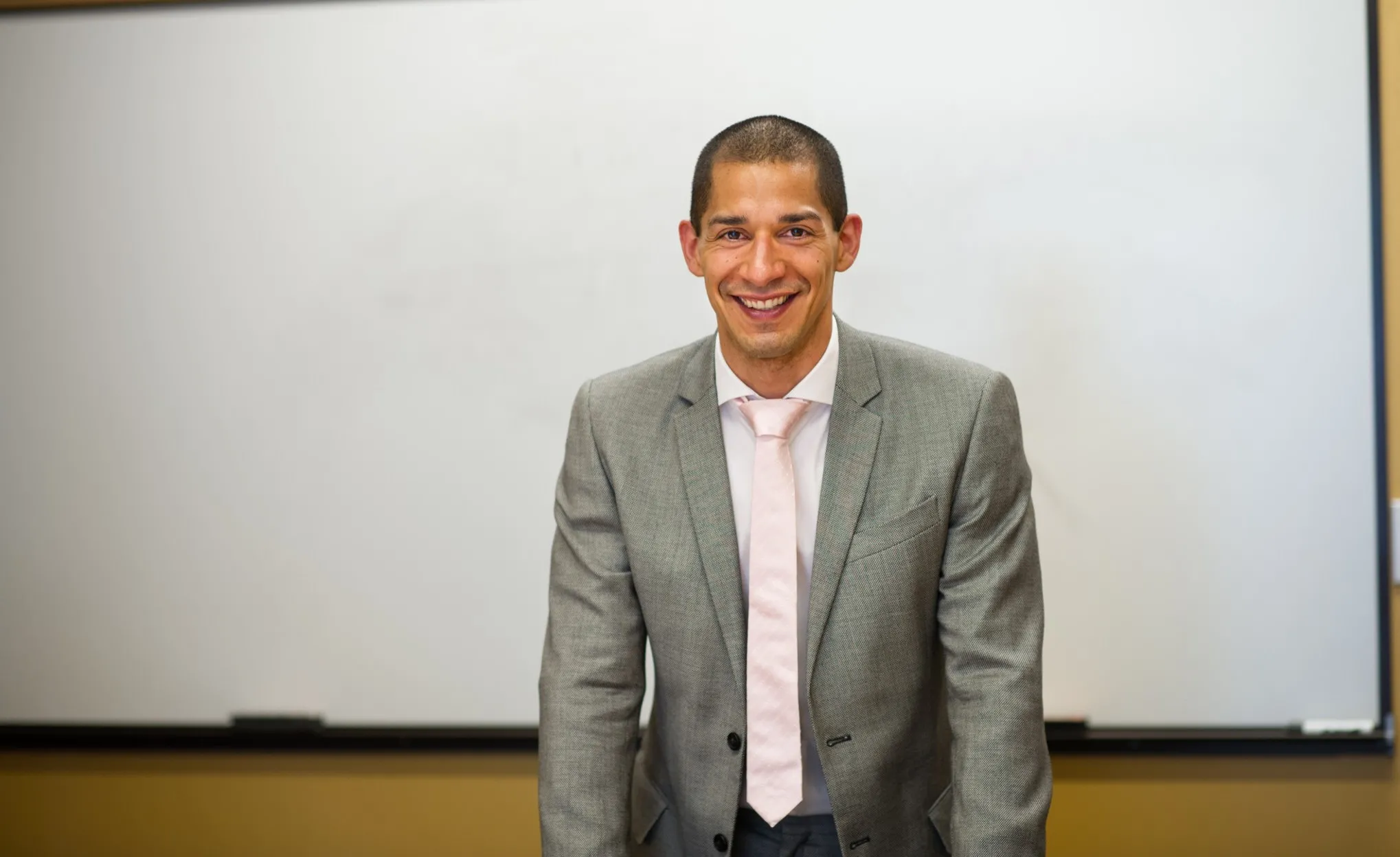Ryan Doerfler Joins the Faculty

Ryan Doerfler, a scholar whose work on statutory and constitutional interpretation grew from an interdisciplinary focus on law, epistemology, and the philosophy of language, joined the Law School’s faculty this summer as a professor of law. Doerfler served as a Harry A. Bigelow Teaching Fellow between 2014 and 2016 and as the Walter V. Schaefer Visiting Assistant Professor of Law during Winter Quarter 2019.
“This is a really wonderful community, and it is exciting to come back and rejoin that group,” said Doerfler, who spent three years as an assistant professor at the University of Pennsylvania Law School after his Bigelow Fellowship. “The atmosphere at the Law School is distinctive and amazing. It’s such an interactive, engaged faculty climate.”
Dean Thomas J. Miles, the Clifton R. Musser Professor of Law and Economics, called Doerfler a “brilliant scholar” whose work “underscores the immense value of interdisciplinary inquiry.”
“We are excited by Ryan’s scholarly work, which addresses important questions about statutory language and meaning, as well as by the exemplary teaching he displayed as a Bigelow Fellow,” Miles said. “We are absolutely delighted to welcome him back to the Law School.”
Doerfler, who majored in philosophy as an undergraduate at Wake Forest University, earned a PhD in philosophy in 2011 and a JD in 2013, both from Harvard. After law school, he clerked for the Honorable Sandra L. Lynch for the US Court of Appeals for the First Circuit and has been a visiting law professor at both Columbia and Harvard. His recent scholarly work includes, “Can a Statute Have More Than One Meaning?” (New York University Law Review, 2019), which examines whether statutory language can mean different things in different cases, and “High-Stakes Interpretation,” (Michigan Law Review, 2018), which explores why courts often interpret text differently when deciding high-stakes cases.
“Ryan’s research and teaching add significantly to our strengths in public law and interdisciplinary work,” said Alison LaCroix, the Robert Newton Reid Professor of Law and the chair of the lateral appointments committee. “His work is esteemed by leading scholars in the fields of legislation and statutory interpretation, as well as by legal philosophers. At a relatively early stage in his career, Ryan has already become a significant voice at the center of debates over statutory meaning and analysis, engaging with questions and methods that are of particular interest to the current Supreme Court.”
Doerfler’s interest in the intersection of philosophy and law emerged early in law school, when he took a course titled Legislation and Regulation. As a doctoral student, he had focused on applying the philosophy of language to normative discourse about ethics, art, and other topics. But as he considered the meaning of various statutes and regulations, he found himself applying his linguistic thinking and, ultimately, exploring the impact that different methods of statutory interpretation have on judicial decision-making.
“A lot of the questions that we were being asked in that course just struck me as the applied philosophy of language,” Doerfler said. “I saw this obvious connection between the work I’d been doing on these more abstract, theoretical issues and these [more concrete] questions in the law.”
Doerfler, who is currently working on a paper that proposes a new framework for evaluating doctrines that assign significance to the “clarity” of a statutory text, says these areas of inquiry are of particular relevance as courts pay increasing attention to the intended meaning of the Constitution and other laws.
“The issues surrounding statutory interpretation are a topic of wide debate, especially on the Court,” Doerfler said. “I think right now we’re at an interesting point. Exactly how the law of statutory interpretation is going to develop is really up for grabs.”
Doerfler, who teaches administrative law and legislation, says he enjoys being in the classroom, adding that statutory interpretation has “immediate practical utility for law students.”
“If you work in litigation—as a lot of our students do—a lot of what you do is going to involve either interpretation of statutes or interpretation of regulations,” he said. “These are direct skills that apply across a wide range of subject-matter areas.”


